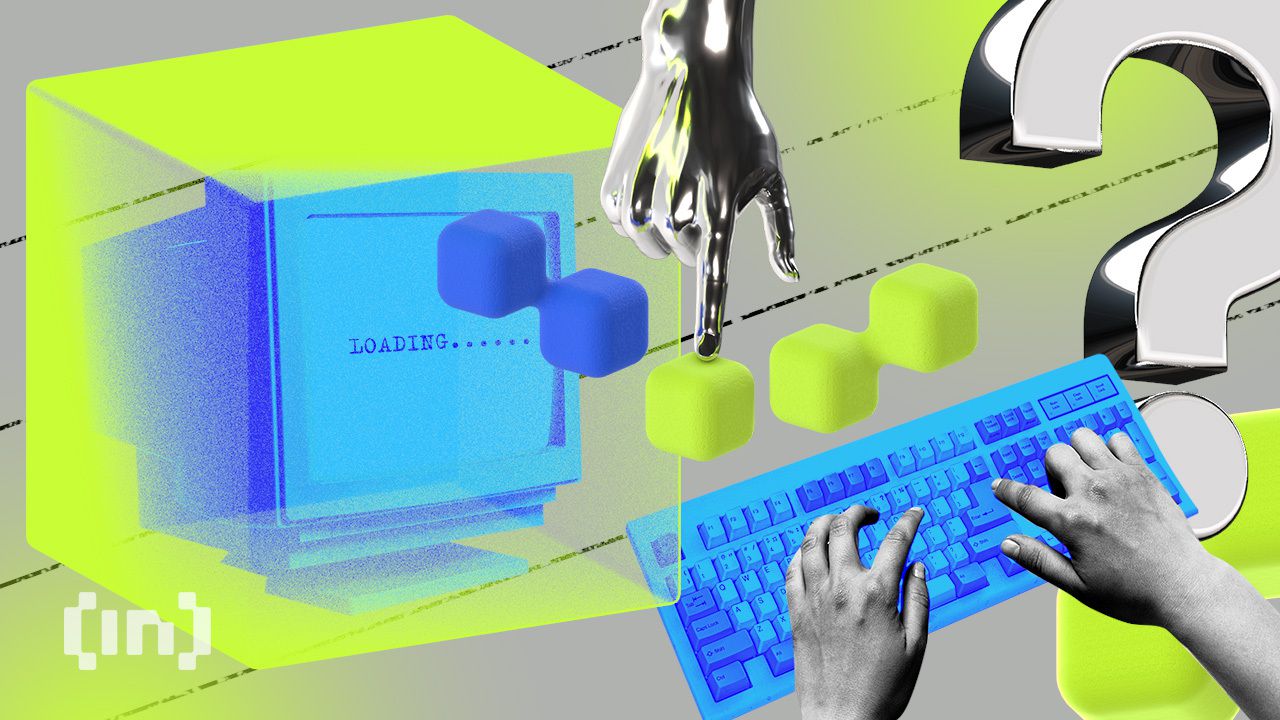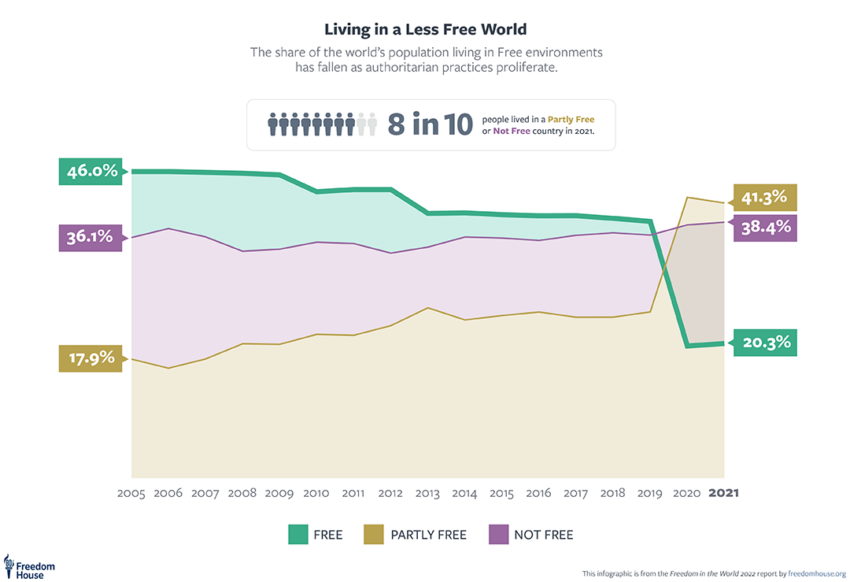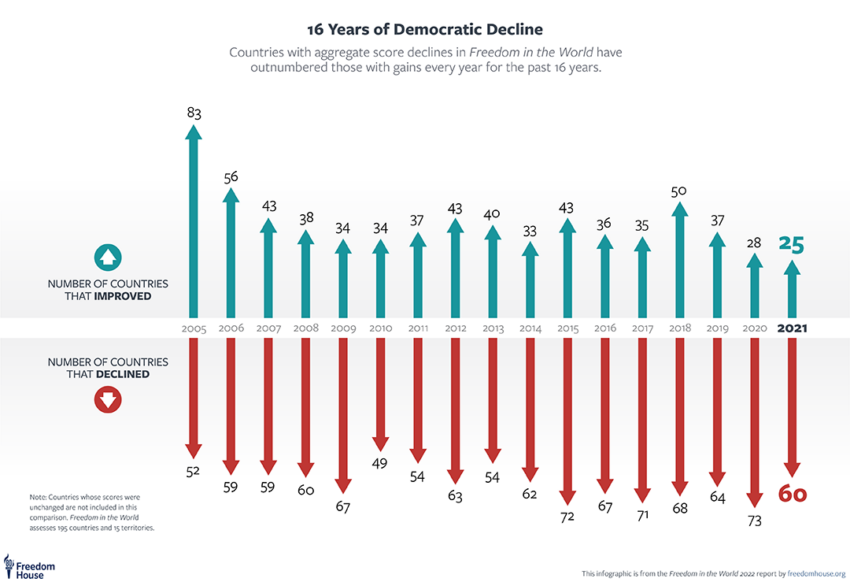Pros, Cons, and Its Influence on Democracy

In an age where democracy is under siege, the look for a protected and credible ballot system has actually never ever been more immediate. Get in blockchain innovation, with its prospective to reinvent the method we vote and protect the democratic procedure.
However as we explore the advantages and disadvantages of this emerging innovation, one must ask: Can blockchain really assist protect democracy? Let’s check out the possibilities, difficulties, and real-world examples of executing blockchain in the electoral procedure.
Authoritarianism and the Guarantee of Blockchain Ballot
As authoritarianism rises in nations like Brazil, Turkey, and, some state, the United States, democracy deals with unmatched difficulties. Precise and transparent ballot is essential for keeping democratic worths.
Blockchain innovation provides a possible service for safe, tamper-proof ballot. In spite of validated outcomes, around 40% of Americans think the last governmental election was “taken,” raising concerns about the innovation’s efficiency in making sure electoral trust.
The Guarantee of Blockchain
Blockchain ballot warranties openness and stability in the election procedure. By taping each vote as an encrypted deal on a decentralized journal, blockchain guarantees votes are irreparable, traceable, and auditable. This avoids tampering and reinforces the trustworthiness of the procedure.
Additionally, blockchain ballot systems can utilize clever agreements to automate numerous election jobs, such as citizen registration, vote tallying, and result statement, more boosting rely on the system. In addition, blockchain-based ballot systems can permit third-party audits, offering a lot more openness to the electoral procedure.
Making use of decentralized and secured journals, blockchain substantially reduces the dangers of citizen scams and hacking. The decentralized nature of blockchain systems makes it hard for destructive stars to control the system. Each node in the network validates deals, making it almost difficult for unapproved gain access to or information adjustment to go undetected.
Making use of cryptographic signatures can guarantee that just qualified citizens can cast their votes, avoiding prospective scams. In addition, a dispersed denial-of-service (DDoS) attack, which is a typical danger to conventional ballot systems, would be less reliable versus a decentralized system.
Remote and safe ballot alternatives can increase citizen turnout by getting rid of geographical barriers and making the procedure more available. Blockchain innovation allows safe remote ballot from anywhere, possibly benefiting those with specials needs, remote employees, and people living abroad.
By improving the ballot procedure and decreasing dependence on manual treatments, blockchain might likewise speed up vote counting and result statement. This can cause a more effective electoral procedure, even decreasing the time it considers outcomes to be revealed.
The Drawbacks of Blockchain
Blockchain ballot isn’t unsusceptible to mistakes and issues. For example, a 51% attack takes place when a single entity or group gains control of over 50% of the network’s computing power, possibly allowing it to control the journal. In addition, collusion amongst individuals in the network might likewise jeopardize election results.
Citizen browbeating, in which people are required to vote a specific method, might continue a blockchain ballot system, messing up the election’s authenticity. Brand-new security procedures, such as safe cryptographic procedures, might require to be established to secure versus these hazards.
Scalability is another difficulty for blockchain ballot systems. As the variety of citizens and deals boosts, the system’s capability might end up being stretched, leading to sluggish deal times and greater expenses. Designers should develop systems efficient in dealing with high volumes of information without quiting efficiency or security.
Interoperability is another issue, as incorporating various blockchain platforms might show difficult. This might impede the prevalent adoption of these ballot systems. Developing market requirements and promoting cooperation amongst blockchain designers might assist resolve this concern.
Last but not least, regulative difficulties are plentiful, as federal governments should prepare thorough guidelines and requirements to govern making use of blockchain ballot systems, possibly triggering hold-ups in execution. Policymakers require to work carefully with innovation professionals to establish legislation that allows development while securing the stability of elections.
The digital divide might aggravate with the adoption of blockchain innovation. Rural or financially disadvantaged locations with restricted web gain access to might have a hard time to take part in elections. Additionally, digital literacy variations might leave out those who do not have the abilities to browse digital ballot platforms. To resolve this concern, federal governments should buy facilities and education efforts to bridge the digital divide and guarantee equivalent access to blockchain ballot systems.

Real-World Examples
West Virginia’s 2018 blockchain ballot pilot targeted military workers stationed overseas. The Voatz app helped with ballot, and while the pilot revealed the ease of blockchain, it likewise exposed security and scalability issues.
Utah did the same in 2020, executing blockchain ballot for its Republican primary. The experiences of these states supplies insights into the difficulties and chances of embracing this innovation on a larger scale.
South Korea’s test of blockchain election systems concentrates on enhancing openness and suppressing scams. A small trial showed effective, however scalability stays an obstacle. Greenland (population 56,000) utilized blockchain in its 2021 elections, revealing prospective for smaller-scale elections in addition to locations in requirement of enhancement. These global examples even more reveal the prospective advantages and present limitations of blockchain ballot.
Extra Factors To Consider
Blockchain ballot systems should guarantee citizen privacy and personal privacy. While the openness of blockchain benefits vote confirmation, it raises issues concerning citizen personal privacy. Designers should develop systems that stabilize openness with personal privacy, making sure that private citizen info stays covert. Strategies such as zero-knowledge evidence and homomorphic file encryption can assist secure citizen personal privacy while maintaining openness.
The success of this innovation depends upon public trust. People require guarantee that blockchain ballot is safe and precise. Public education projects and transparent audits are essential to construct rely on the system and address mistaken beliefs. Engaging stakeholders, consisting of political celebrations, election authorities, and the public, can assist cultivate trust and assistance for the adoption of this innovation.
Executing such ballot systems needs substantial financial investment in facilities advancement, consisting of hardware, software application, and training for election authorities. Federal governments should weigh these expenses versus the prospective advantages of embracing blockchain innovation. Long-lasting expense savings, such as decreased costs on paper tallies and ballot stations, must likewise be thought about.

Utilizing Blockchain’s Prospective for Democracy
Blockchain provides an appealing service for protecting democracy through transparent, safe, and available elections. In spite of the prospective benefits, difficulties such as mistakes, vulnerabilities, scalability, and inequalities should be resolved. Real-world examples show both the prospective and the limitations of blockchain ballot.
As the innovation develops and these difficulties are taken on, blockchain might add to protecting democracy worldwide. Nevertheless, success depends upon constructing trust, making sure personal privacy, and establishing the needed facilities to support making use of this innovation. Cooperation amongst federal governments, innovation companies, and other stakeholders is essential to recognize the complete capacity for enhancing democratic systems.
Disclaimer
Following the Trust Task standards, this function short article provides viewpoints and viewpoints from market professionals or people. BeInCrypto is devoted to transparent reporting, however the views revealed in this short article do not always show those of BeInCrypto or its personnel. Readers must confirm info individually and seek advice from an expert prior to making choices based upon this material.







